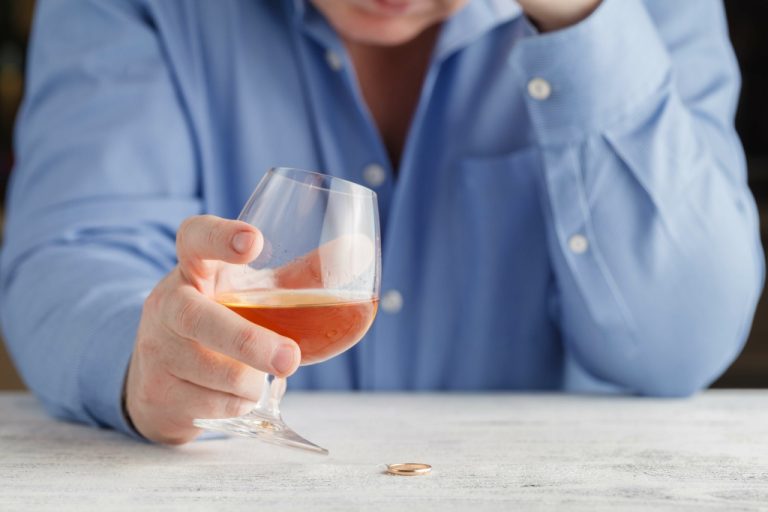But it can be derailed quickly by those hopeless, negative thoughts, and the actions that go with them. Trapped in that mindset, an addicted person might think that there’s no point in trying to recover, because they’ll always use again. If you’re having difficulty staying clean or battling cravings, it might be best to seek help at a reputable drug rehab center.
- They then asked another group to write about the daily irritations or things that had displeased them.
- When you think or talk about your addiction, always follow up with where you are now.
- In fact, many people who abuse substances to fight these feelings also suffer from co-occurring mental health disorders such as depression, which creates its own set of symptoms.
- For example, you could thank a friend who supported you during a difficult time, write a note to a coworker who helped you with a project, or give a gift to a family member who made you laugh.
- If you are in recovery, you have accomplished so much just by being sober or trying to get sober.
At the same time, you should work to both forgive others who may have made things worse for you or said harsh things while you were addicted and work to reach closure with them. Our default mode is to look out for danger and try to anticipate what might go wrong. Ten people tell you it looks great and one person tells you it looks stupid. Practicing gratitude is a way of pushing against our natural tendency to dwell on the negative.
FAQs about The Power Of Gratitude In Addiction Recovery: Cultivating A Thankful Mindset
It’s important to point out that some hardship is a natural part of life. Without challenge and obstacles, we will never learn to stretch ourselves and grow. However, if you find that you’re always having a hard time, perhaps shifting your perspective can help. Every year at Insight we have a Gratitude Meeting the night before Thanksgiving. This tradition has been a significant part of our addiction treatment program for over 40 years. It is the one meeting a year that the entire family is together in the same room.
There are a number of ways to improve the quality and quantity of your sleep, including keeping a regular sleep schedule and practicing good sleep hygiene. If sleep problems persist, it’s worth discussing with your doctor or therapist. However, one way of improving the quality of your sleep is to practice gratitude. One study of more than 400 people between the ages of 18 and 68 found that people who felt more gratitude experienced better sleep quality and they slept longer. The results suggest that the primary reason for this is that more grateful people tend to experience more positive thoughts and fewer negative thoughts prior to sleep. This creates a virtuous cycle, since a well rested brain is more resilient and better at regulating emotions.
Gratitude improves your physical health.
Instead of focusing on material possessions or the things you’re missing out on, make a commitment to celebrate the things you do have. If you’re new to recovery, also make sure that you are active in your self-groups and regularly attending AA or NA. Secondly, gratitude has been shown to reduce levels of stress hormones such as cortisol and adrenaline. This makes sense when you consider that stress is often caused by worrying about what might happen in the future or dwelling on past mistakes. Gratitude allows us to live in the present moment and appreciate what we have right now. Are you looking for more ideas for how to stay committed to sobriety?

For example, Robert Emmons, a professor at the University of California, Davis, is one of the leading researchers in gratitude studies. He and his colleagues conducted multiple research studies regarding the impact of gratitude on physical health, psychological well-being, and our relationships with others. They tested whether the simple incorporation of gratitude journaling for 3-weeks would positively affect these areas of participants’ lives. Actively practicing gratitude fosters a mindset of positive thinking, and this can greatly improve mental and physical health. Being grateful helps us focus on the good and gives us energy and confidence.
Thank Your Way out of Addiction: How Gratitude May Be the Key to Recovery
Happy people arguably have one thing in common — they are grateful for what they have on any given day. As a recovering addict, developing a sense of gratitude about the things you appreciate may help you break free from the darkness of addiction. Gratitude allows an individual to celebrate the present and be an active participant in their life. No matter what your religious or spiritual beliefs, taking some time each day to say thank you to your Higher Power is a great way to cultivate more things to be grateful for in your life. This multiplies and before you know it your life is beyond your wildest dreams.
- Entering into recovery, addicts and alcoholics are directed to a healthier and more positive outlook.
- And no matter which way we choose to look, there will be plenty to be found of both.
- Practicing gratitude in recovery is not always easy, but it is always worth it.
- Active addiction can damage your physical and mental health, relationships, finances, and your self-worth.
- You might even decide to Have a gratitude journal yourself for a year and make notes on how your perspective and thinking changes over that year.
Most people with substance use disorder are likely to suffer from mental health conditions. If you also have a dual diagnosis, you must follow a collaborative treatment plan that can simultaneously address both disorders. You’ll also notice the small improvements you make, the support you get from friends and family and the beauty of sober living.
You can learn to be grateful for the healing journey and all the progress you make. If you’re searching for guidance on where to turn next during addiction recovery, ALYST Health is here to provide all the recovery resources you need. Our Certified Recovery Agents specialize in making rehab accessible to anyone with an at-home, concierge recovery approach. Your CRA can help you develop and practice gratitude as a daily part of your recovery plan. Give us a call to start developing a treatment program tailored to your lifestyle around our full suite of addiction recovery services. When properly cultivated, gratitude becomes an action of expressing your love for someone or something.
Individuals with active, supportive families have far better outcomes. Jonathon realizes that it’s impossible to move mountains overnight, but with gratitude and recovery the right support team and positive attitude, anything is possible. Gratitude is not just about saying thank you, it is much more than that.





